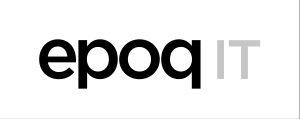4 Ways In Which Businesses Need To Innovate & Adapt
Payroll, HR and other experts discuss the ways in which businesses need to innovate and adapt
We recently spoke with four industry experts, with a view to understanding how the current situation has fostered a need to innovate and adapt. Leaders from Procurement, Payroll Processing, Managed IT Services and HR shared their observations with us.
4 Ways in which Businesses Need to Innovate and Adapt
Nicholas Challen CEO – HBSL
HBSL is a procurement consultancy to the hospitality and retail sectors. It specialises in reducing the cost and time spent on day to day procurement with a speciality in merchant card services and energy & water management. With a track record of savings of up to 45% and average savings of 25% on merchant services, as well as savings on energy and water management, HBSL can save you time and hassle.
If I had been told a year ago that nearly all restaurants and hotels across the British Isles would have been closed for three months, I would not have believed them – who would? Even now, the trading environment looks uncertain. The second wave of Covid-19 and the impact that may have as winter approaches is a big concern. The fear of another lockdown is still very real and businesses need to adapt.
As our company specialises in the hospitality sector, we have a direct interest in how our clients view the months and years ahead as well as how they have dealt with the lockdown up to now. So far it’s been the businesses that have adapted the fastest that have fared the best. For instance, one of our clients – a country pub – started a takeaway business during lockdown, and continued as they reopened. It gave them an income stream, which didn’t exist before. Another client of ours – a food supplier to the sector – started delivering to people’s homes, again creating a new revenue stream. They’ve adapted to survive. These are straight forward examples of business owners doing what business owners do. They are entrepreneurs, who find solutions to drive sales to meet the trading climate of the day. Will this be enough? Until a vaccine is found, businesses will not – and cannot – return to normal.
So, what else can be done? In my book “How to survive and thrive in the age of the living wage” I cited the example of car manufacturer Mazda. They had a policy of reviewing every component of a new model, and tried to reduce each part by a few grams. Small changes can make a big impact: they achieved a lighter and more efficient car. Grams added up to kilograms.
At HBSL, we take the same approach replacing Kg’s with £££’s, reviewing the expenditure, making businesses leaner and ready for the times ahead.
Anne Reilly CEO – Paycheck Plus
Paycheck Plus are a multi-award winning payroll-outsourcing service. Operating from ISO accredited Payroll bureaus in Manchester and Dublin, Paycheck Plus manage many of the UK and Ireland’s largest and most complex payrolls, processing more than 195,000 payslips totalling more than £400,000,000 every year.
The pandemic, the shift to remote working and rapid legislative change has brought about significant challenges for payroll processors. And unfortunately, many payroll processors and outsourced payroll services were ill-prepared for it.
Although it pains me to say it, many in the payroll industry had become complacent. Payroll processing had become routine for many payroll services with payroll processors functioning as glorified data-entry clerks. They were processing this month’s payrolls the same way as they did last month’s without any fundamental understanding of what they were doing and why they were doing it.
Inevitably, when the legislation and criteria changed, and payroll processors were required to make changes, many of them were unable to do so. With so many payroll processors found wanting, unfortunately, organisations had to adapt. They had to invest in training, add to their payroll teams or outsource. Fortunately for us, many chose the latter option. And although it seems counter-intuitive, at a time when employment levels were falling to record lows we were being inundated with enquiries. Business was booming.
As I look on it now, it’s incredible to think that at a time when businesses the world over are entering into a recession, we’ve had to hire additional staff. Especially when you consider that our service is contingent on employees. But workers expect to be paid, and more to the point, they expect to be paid the right amount. So now, more than ever, organisations are relying on the ability and expertise of their payroll service, be that in-house or outsourced. Whether that means investing in training and recruitment in your own organisation or outsourcing will depend on the business in question but one thing is for certain organisations need a payroll provider they can trust.
Gary Swanwick Founder and CEO – Epoq IT
Founded back in 2002, Epoq IT is a customer-focused Managed Services Provider that specialises in regulated sectors. Epoq IT helps regulated businesses stay compliant through a mixture of strategic services and managed services in business continuity, IT security and the traditional service desk.
To find out more visit: www.epoq-it.co.uk
As Charles Darwin said, ‘those species that adapt best to their changing environment have the best chance of surviving’. Recent months have shown how much this applies to business.
For sure, few companies were sufficiently digitally-enabled to handle their entire operations – and customer base – switching to remote working overnight.
Decisions that hugely affected company culture were being made instantly, and clearly, an innovative approach to strategy, technology and services was needed in the face of irreversible changes to working norms and customer expectations.
We asked. “What did businesses need to do now to build resilience into their IT infrastructure, manage on-going uncertainties and ultimately, gain competitive advantage by getting ahead of the digital curve?
The answer … focus on the benefits of enforced rapid digital transformation and build on this to achieve a truly agile IT technology platform – using technology largely already available.
Just as important, recognise that this represents a huge cultural shift for many staff, and support is needed to make new digital ways of working second nature.
Here’s an example; one company’s in-person operational model was completely upended by the pandemic. Yet, by developing an innovative accelerated digital strategy, the 100-strong client services team was able replace face-to-face meetings with video-conferencing technology, saving time and significant travel costs.
Staff engagement with the new technology was crucial. After the initial rollout, internal ‘Digital Champions’ were trained by Epoq IT to successfully act as first line supporters and advocates for the wider team.
In another case, we were able to help an international company streamline and digitise many of their processes, introducing technology, including Microsoft SharePoint, to solve pressing data-sharing and collaboration dilemmas, while yielding a smart, resilient digital platform for the future.
Let’s summarise with the slightly adapted thoughts of John F Kennedy, “Change is the law of life and those who look only to the past or present are certain to miss the (digital) future.”
Paul Holcroft Associate Director Croner
Croner help organisations save time, energy, and money on HR, employment law and health & safety. They have been supporting businesses for over 75 years and are one of the most trusted business support companies in the UK. They keep clients successful and profitable in a variety of ways including: Expert 24/7 HR and health & safety advice, Industry-leading software, Hands-on support with policies and procedures. They also offer optional extras for additional support: employee assistance programmes, tribunal representation, legal expenses insurance, and more.
To find out more visit: croner.co.uk/
The coronavirus pandemic has presented employers in 2020 with challenges and opportunities alike. One change which falls under both of these categories is the concept of remote working.
Initially done out of necessity but increasingly viewed as a benefit remote working has spurred many businesses to innovate. And now, even with people being asked to return to work, many high-profile companies are continuing homeworking long-term.
In response, you’re right to consider if you should be doing the same. There is no doubt that homeworking can be popular with staff. It allows them to avoid lengthy commutes. Plus, it helps avoid potential exposure to the coronavirus from colleagues or other commuters.
Homeworking can be a successful way of maintaining employee morale. This is key to continued productivity and retention. Staff who are unwilling to return to the office may look elsewhere for employment if remote working is made unavailable. This is particularly true if they continue to have concerns around COVID-19.
You may be unwilling to make such a big change to your working practices—particularly if they’ve been successful so far. However, remote working is rising in popularity. Increasingly, employees are looking for flexible working options as a benefit when job-hunting. And, if you’re worried about productivity, numerous studies have shown that homeworkers are just as, if not more productive. The key is effective management. Too little management runs the risk of slacking and procrastination. Too much management will lead to stress and a strained working relationship.
Effective management is contingent on a number of key factors: Firstly, establish a clear home-working agreement. It must outline all health & safety requirements and the hours staff are expected to work. It would also be wise to include a clause stating that the arrangement will be terminated if it is deemed not to be working. Secondly, set clear targets. They should be asked to justify why these targets have not been met if necessary. Some employers may still want their staff in on certain days, even if just for team meetings. If so, this should also be clearly specified.
Paycheck Plus, first for International HR & Payroll Services
Whether you are dealing with Irish, UK or International payrolls, processing in-house can be a complex and time-consuming operation. Employee queries and updates coupled with changes in employment statuses can make maintaining payroll compliance challenging for even the best intentioned organisation.
When legislative hurdles, employee relations issues, recruitment and retention goals are added to the mix it’s easy to see how HR and Payroll challenges can take its toll on a business’ internal payroll resources.
At Paycheck Plus, our award winning human resource and payroll teams can help you manage your workforce, providing a scalable HCM solution that can grow as your business develops. We provide International HR and payroll outsourcing services tailored specifically to our your needs.
To find out more make an enquiry or call us on +353 (0) 1 905 9400.
Paycheck Plus | Your Payroll. Our Passion.







